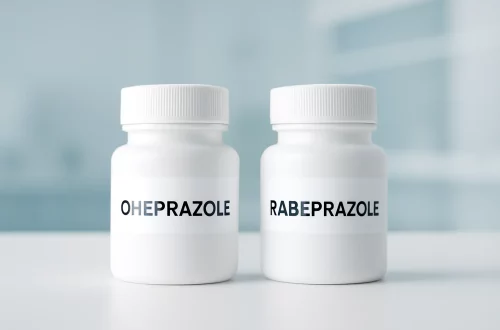
Do Rabbits Eat Celery and Is It Safe for Their Diet?
Rabbits are often regarded as gentle and playful pets, making them a popular choice for animal lovers. These creatures are herbivores, which means their diet is primarily composed of plant-based foods. When considering what to feed a rabbit, many owners find themselves exploring a wide range of vegetables, fruits, and herbs. Among these, celery often comes up as a potential snack. While it’s easy to assume that if a food is safe for humans, it could be safe for our furry friends, this is not always the case.
Understanding the dietary needs of rabbits is essential for their health and well-being. Rabbits have unique digestive systems that require a specific balance of nutrients. Their diet should consist mainly of hay, complemented by fresh vegetables and a limited amount of pellets. As responsible pet owners, it’s crucial to know what foods are beneficial and which ones could be harmful. Celery, with its high water content and crisp texture, might seem like an appealing option, but it raises several questions regarding its safety and nutritional value for rabbits.
In this article, we’ll delve into the suitability of celery for rabbits, exploring its nutritional benefits, potential risks, and best practices for incorporating it into their diet.
Understanding Rabbit Nutrition
To appreciate whether celery is a safe option for rabbits, we must first understand their nutritional requirements. Rabbits need a diet rich in fiber, which is crucial for their digestive health. High-fiber foods help maintain a healthy gut, prevent obesity, and reduce the risk of dental issues. Hay, particularly grass hay, should be the primary component of a rabbit’s diet, making up about 70% of their food intake.
Fresh vegetables are an essential addition to a rabbit’s diet, providing vitamins, minerals, and hydration. A variety of leafy greens like romaine lettuce, kale, and cilantro are excellent choices. However, not all vegetables are created equal, and some can be harmful if fed in excess or improperly prepared.
When considering new vegetables like celery, it’s vital to look at their nutritional composition. Celery is low in calories and contains vitamins such as K and C, along with potassium and folate. Its high water content can also help keep rabbits hydrated. However, the fiber content in celery is lower than that found in many leafy greens, which could lead to digestive issues if offered as a primary food source.
Rabbits are prone to gastrointestinal stasis, a condition where the digestive system slows down or stops. This can be life-threatening and is often caused by a lack of fiber in their diet. Therefore, while celery can be included as an occasional treat, it should not replace the essential high-fiber foods that rabbits need daily.
Can Rabbits Eat Celery Safely?
The good news is that rabbits can eat celery, but moderation is key. Celery is not toxic to rabbits, making it a safe option for occasional snacking. However, due to its fibrous texture and lower fiber content, it should not be a staple in their diet.
When introducing celery to a rabbit’s diet, it’s crucial to do so gradually. Start by offering a small piece and observe how your rabbit reacts. Some rabbits may enjoy the crunchiness and taste of celery, while others may be indifferent. If your rabbit shows signs of digestive discomfort, such as bloating, diarrhea, or a decrease in appetite, it’s best to remove celery from their diet.
Preparation is also important when feeding celery to rabbits. Always wash the celery thoroughly to remove any pesticides or chemicals that could be harmful. Cut it into small, manageable pieces to prevent choking and encourage your rabbit to chew properly.
Additionally, rabbits often prefer the leafy tops of celery over the stalks, as they are softer and more nutritious. The leaves contain higher levels of vitamins and minerals, making them a better option compared to the fibrous stalks. Always remember to offer a variety of vegetables to ensure a balanced diet, and treat celery as a special addition rather than a primary food source.
Potential Risks of Feeding Celery to Rabbits
While celery is generally safe for rabbits, there are some potential risks that owners should be aware of. One of the main concerns is the high water content of celery, which, while beneficial for hydration, can also lead to diarrhea if fed in excessive amounts. A sudden increase in the amount of fresh vegetables, including celery, can overwhelm a rabbit’s digestive system, resulting in loose stools.
Rabbits thrive on a stable diet, and any significant changes can cause stress on their digestive tract. If you notice any changes in your rabbit’s behavior or digestive health after introducing celery, it’s advisable to consult with a veterinarian.
Another consideration is the risk of pesticide exposure. Many vegetables, including celery, can be treated with chemicals that may be harmful to rabbits. Always opt for organic celery when possible, and wash it thoroughly to minimize any potential risks.
It’s also essential to monitor your rabbit’s overall health and diet. If they are not eating enough hay or are overly reliant on snacks like celery, this could lead to nutritional deficiencies. Always prioritize high-fiber foods and use treats as just that—occasional rewards rather than everyday staples.
Best Practices for Incorporating Celery into a Rabbit’s Diet
If you decide to include celery in your rabbit’s diet, there are several best practices to follow to ensure their health and safety. First, always serve celery in moderation. A small piece once or twice a week is sufficient for most rabbits. This approach allows your pet to enjoy the taste of celery without compromising their digestive health.
Second, always combine celery with other vegetables to provide a more balanced diet. Mixing celery with leafy greens, such as spinach or parsley, can offer a variety of nutrients while keeping the fiber content high. This balance is essential for promoting healthy digestion and overall well-being.
Third, consider the individual preferences of your rabbit. Each rabbit has its own tastes, and while some may love celery, others may prefer different vegetables. Pay attention to their reactions and adjust their diet accordingly.
Lastly, always consult with a veterinarian for personalized dietary advice tailored to your rabbit’s specific needs. Regular check-ups can help identify any potential health issues before they become serious, ensuring your rabbit stays happy and healthy for years to come.
In summary, celery can be a safe and enjoyable treat for rabbits when fed in moderation and prepared correctly. By following these guidelines, you can ensure that your rabbit’s diet remains balanced, nutritious, and safe.
**Disclaimer:** This article is for informational purposes only and should not be considered medical advice. Always consult a veterinarian for health-related concerns regarding your pet.




